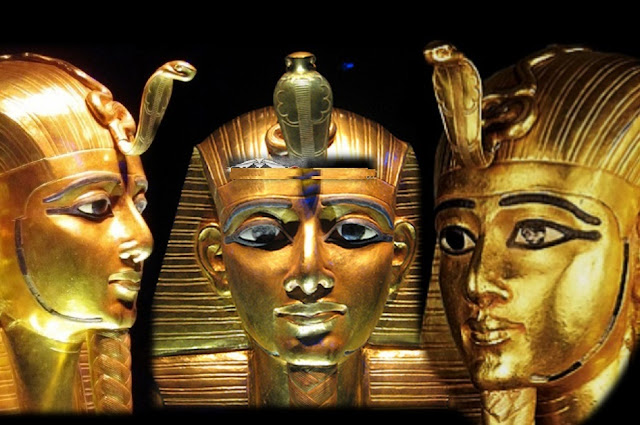World Bank, IMF held responsible for health crisis in Africa
A
new report documents how the policies of the IMF and World Bank have eroded
healthcare systems in Africa, undermining access by the poor to this essential
service.
by
Jim Lobe
WASHINGTON:
Policies pushed by the World Bank and the International Monetary Fund
(IMF) on debt-strapped African countries over the past two decades bear
major responsibility for the region’s health crisis, including the devastating
spread of HIV-AIDS, according to a new report by a major US-Africa advocacy
group.
Africa
Action, a merger of three grassroots anti-apartheid groups, charged that
structural adjustment programmes (SAPs) backed by the Bank and Fund wreaked
havoc on African health budgets and systems, while more recent efforts
to rely on “user fees” to fund healthcare have made it much more difficult
for the majority of Africans who are poor to gain medical help.
And
while the Bank has recently increased its health funding, for HIV/AIDS
programmes in particular, the staggering debt burden carried by most African
countries, which so far has been inadequately addressed by the IMF and
the Bank, represents a major obstacle to real progress, the report said.
“The
policies of the World Bank and IMF have eroded Africa’s healthcare systems
and intensified the poverty of Africa’s people,” said Salih Booker, executive
director of Africa Action. “These institutions must be made accountable
for their role in causing the worst health crisis in human history, which
Africa now faces.”
The
report, “Hazardous to Health: The World Bank and IMF in Africa,” was released
on 18 April, in advance of the 20-21 April spring meetings here of IMF
and Bank governing committees. As in recent years, the meetings attracted
dozens of non-governmental organizations (NGOs) and globalization activists
long critical of SAPs and other Bank-IMF initiatives.
The
two agencies, which together provide some $35 billion in loans to poor
countries per year, have increasingly made their lending conditional on
the implementation of policy reforms by borrowing countries. Those policy
conditions - which have often come in the form of SAPs - are generally
intended to increase the integration of the borrowing country into the
global economy and make it more attractive to private and foreign investment.
Among other measures, SAPs, which have been applied to more than 90 borrowing
countries over the past two decades, are aimed at cutting government expenditures;
privatizing state-owned companies; liberalizing trade and financial regimes;
and expanding exports.
NGOs
have long argued that such policies are ruinous to the poorer and more
vulnerable sectors in developing countries, especially because governments
under pressure to reduce spending usually begin with cuts to health, education,
other social programmes, and food subsidies on which the poor often depend.
Ailing
health services
That
was the case in sub-Saharan Africa during the 1980s and early 1990s, according
to the report, which noted that health systems of many of these countries
had recorded major successes in reducing infant and maternal mortality
rates and training medical personnel and teachers in the years that followed
independence from European powers.
A
combination of rising world oil prices and interest rates and falling
prices for their export commodities during the late 1970s and early 1980s,
however, forced many of these same countries to go to the Bank and the
Fund for loans needed to service a growing debt burden.
Many
studies conducted over the past decade have shown that SAPs have hurt
the poorest sectors hardest by diminishing their access to basic services.
Indeed,
a seven-nation study (SAPRI) released in mid-April on the impact of SAPs,
undertaken jointly by the Bank and an international group of NGOs known
as the Structural Adjustment Participatory Review Initiative Network,
concluded that “poverty has been further deepened by the inability of
the poor to access essential services at affordable rates.”
In
Africa, the impact on access to healthcare has been particularly dramatic,
as even the Bank now concedes.
In
the 42 poorest countries in Africa, for example, spending on healthcare
fell by 50% during the 1980s, by the end of which public-health experts
were beginning to recognize the potentially devastating impact of the
HIV-AIDS pandemic in Africa.
Ironically,
even as healthcare systems were being dismantled and the potential impact
of the virus understood, the amounts of money paid by African governments
to foreign creditors, including the Bank and the IMF themselves, continued
to increase. “By the 1990s, most African countries were spending more
repaying foreign debts than on health or education for their people,”
according to the Africa Action report.
The
Bretton Woods agencies’ answer to the growing crisis in healthcare, however,
remained consistent with the market-based approach of structural adjustment.
Instead of reducing the debt and systematically rebuilding governments’
ability to provide health services, the Bank recommended privatization
in the form of user fees for health services; the promotion of health
insurance schemes; and increased investments in private care.
“The
introduction of market principles into healthcare delivery has transformed
healthcare from a public service to a private commodity,” according to
the report. “The outcome has been the denial of access to the poor, who
cannot afford to pay for private care.”
The
Bank recommended the adoption of systems whereby user fees for healthcare
would be applied only to patients who could afford them. But these schemes
have been found by a series of UN and other studies to be either non-existent
or ineffective.
As
NGO criticism of the Bank’s and IMF’s strategies gained momentum during
the latter half of the 1990s, the Bank has increased funding for health
and HIV/AIDS programmes in Africa and tried to distance itself from user
fees, especially after the US Congress passed legislation in 2000 calling
on the US representative on the Bank’s board to oppose the use of user
fees for primary healthcare and education.
In
a current policy statement, the Bank says it “supports the provision of
free basic health services to poor people,” and discourages user fees
in cases of immunization, maternal and child care, and efforts specifically
targeting tuberculosis, HIV/AIDS and certain other diseases.
Whether
the Bank is strictly adhering to this policy in practice is difficult
to ascertain, according to the report, which stresses that the IMF, which
often determines the policy framework for SAPs, remains committed to user
fees for a range of services, including for healthcare.
Moreover,
new lending for health and education - a major thrust of the Bank’s response
- “can achieve little when the debt burden of most African countries is
already unsustainable,” according to the report, which calls for both
debt cancellation as well as additional funding for health and education
in grant form. (IPS)
Source:
TWN side
Africason is a die-hard believer in Africa.
Twitter: @african_school
Website: www.africason.com
Email: info(AT)africason.com
Find my songs on iTunes, artiste name: Africason
BACK TO
MAIN | ONLINE BOOKSTORE
| HOW TO ORDER






Comments
Post a Comment